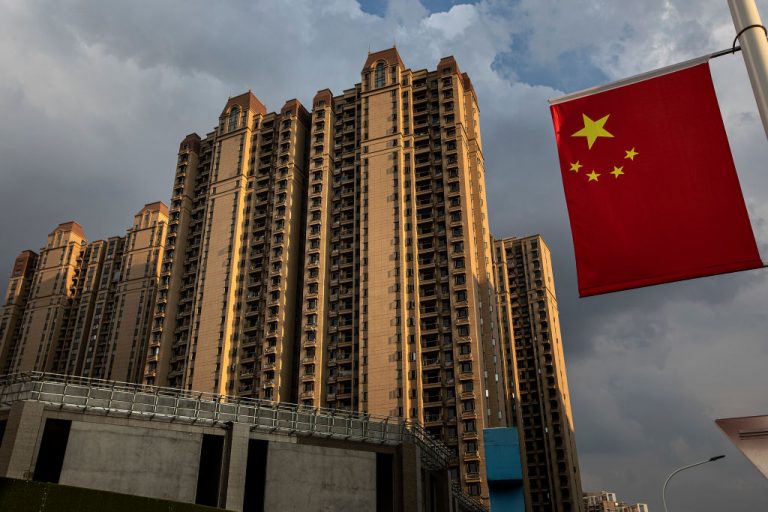Property developers in communist China faced major problems in 2021. Plagued by several issues like the inability to pay debts and slowing consumer demand, many real estate firms faced a severe cash shortage. Looking at the payments due in January alone, it doesn’t seem like the Chinese property sector’s problems are going to end anytime soon.
According to Bloomberg’s calculation, the Chinese real estate industry needs at least $197 billion this month to meet its bond obligations, pay off deferred wages to migrant workers, and cover coupons and trust products. The breakdown of these dues is as follows:
- $173 billion in worker wages according to economists from Nomura Holdings. Beijing has asked property companies to ensure payment of deferred wages to millions of workers by month-end so as to avoid potential social unrest.
- $6.04 billion in principal payments and $1.7 billion in coupons for dollar-denominated bonds.
- $5.85 billion in principal payments and $1.01 billion in coupons due on onshore notes.
- $9.47 billion due on trust products.
In addition, the real estate industry is also liable to pay interest on offshore and local bonds, its suppliers, and honor any other hidden debt obligations due at the end of the month. For the remainder of the year, billions more will be owed.
The property sector has also seen low demand in recent months, which is projected to continue. This is something that will affect the cash flow of developers and make it difficult for these firms to pay off their dues.
In 2021, the sale of properties only rose by three percent. According to data compiled by SCMP, sales for this year are expected to drop by up to 10 percent.
Success
You are now signed up for our newsletter
Success
Check your email to complete sign up
Chen Shen, an analyst from Huatai Securities, said to the media outlet that an “expectation of a downtrend” in home prices has already formed and that demand for homes is likely to remain weak.
“More home seekers would just wait and see as they expected the home prices to drop or at least not to increase much in the near future… Thus, contracted home sales are very likely to dip [in 2022]. That would continue to pressure developers,” Yan Yuejin, research director at E-house China Research and Development Institute in Shanghai, stated.
The developers who have bond payments due this month include Evergrande, Kaisa, and Shimao. All these companies are financially strained right now.
On Jan. 3, Evergrande Group, which is said to have debts exceeding $300 billion, announced that it will demolish 39 under-construction residential buildings on the island of Hainan following instructions from authorities.
The reason for the order was not provided. In addition, Evergrande’s shares were suspended from trading earlier in the day pending the release of “inside information.” The company had missed honoring coupon payments worth $255 million that were due on Dec. 28.
“The market is watching the asset disposal progress from Evergrande to repay its debt, but the process will take time… And the demolition order in Hainan will hurt the little homebuyer confidence [that] remained in the company,” Conita Hung, investment strategy director at Tiger Faith Asset Management, told Reuters.
Kaisa failed to pay off a $400 million dollar bond which matured on Dec. 7. The company has $11.2 billion in outstanding dollar debts. Last month, Fitch downgraded Kaisa into “restricted default.”
Shimao is facing a huge transparency crisis after customers who bought 96 properties from the company found that they were not able to transfer the ownership titles since the developer had already pledged the properties to one of its lenders.














